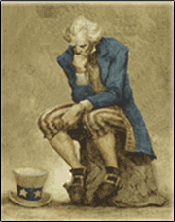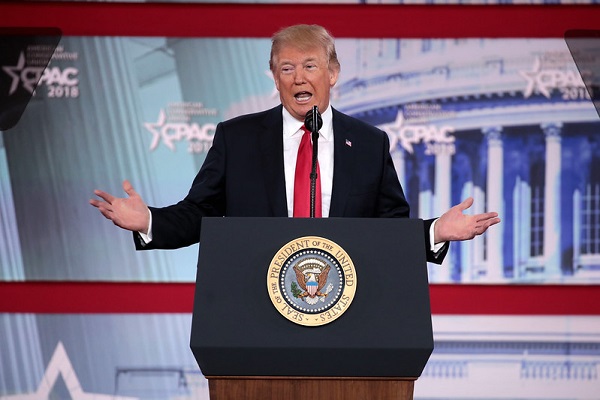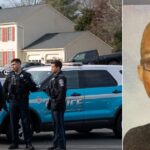
–>
July 2, 2023
We need heroes. We need people to whom we can look up, as examples of, and exemplars for, the virtues of courage and devotion to duty. So urgent is our need that we sometimes create unrealistic myths about them — for example, the one about George Washington and the cherry tree.
‘); googletag.cmd.push(function () { googletag.display(‘div-gpt-ad-1609268089992-0’); }); document.write(”); googletag.cmd.push(function() { googletag.pubads().addEventListener(‘slotRenderEnded’, function(event) { if (event.slot.getSlotElementId() == “div-hre-Americanthinker—New-3028”) { googletag.display(“div-hre-Americanthinker—New-3028”); } }); }); }
It comes as a shock, therefore, when some of our heroes are seen, by some, to have been scoundrels. George Washington is vilified for having owned slaves, despite his courage and heroism. President Kennedy’s scandalous infidelities to his wife are a blot on his record, despite his war service. Yes, even some of our war heroes do not escape the judgments of historians.
Marine Corps major Gregory “Pappy” Boyington (1912–1988) is extolled for the wartime exploits for which he was awarded the Medal of Honor, America’s highest military medal. Boyington’s first combat encounter with the enemy was as a fighter pilot serving with the famous Flying Tigers over China. He is credited with having shot down two Japanese aircraft there, and with leading other pilots to victories as well. By war’s end, he was a top-rated ace.
Alas, Boyington had a problem with alcohol — a big problem, as it turns out. He was sent home from China early by General Claire Chennault, after serious disciplinary infractions, one of which involved some reckless, and presumably drunken, unauthorized aerobatics over a public gathering where China’s first lady was present. The potential for catastrophe could not be overlooked, and Boyington’s poor judgment could not be excused.
‘); googletag.cmd.push(function () { googletag.display(‘div-gpt-ad-1609270365559-0’); }); document.write(”); googletag.cmd.push(function() { googletag.pubads().addEventListener(‘slotRenderEnded’, function(event) { if (event.slot.getSlotElementId() == “div-hre-Americanthinker—New-3035”) { googletag.display(“div-hre-Americanthinker—New-3035”); } }); }); }
After about a year of “exile” from military duties, Boyington was allowed to return to the Pacific, where he shot down an additional 24 enemy aircraft, putting himself on a par with the famous World War One ace Eddie Rickenbacker. He was the subject of a television series, co-authored his biography, and appeared as himself on the iconic TV “quiz” show, To Tell the Truth.
Boyington ended the war as a captive of the Japanese and returned to the US as a hero. For a time, his alcoholism devastated his life, but he eventually overcame that.
Whereas Boyington’s flaws did not discredit him in the public mind, the same cannot be said of Randall “Duke” Cunningham.
Serving as a fighter pilot, Cunningham became the Vietnam War’s only Navy ace, shooting down five enemy aircraft. He narrowly avoided death or capture when his aircraft was disabled in combat. His heroism undoubtedly contributed to his winning his election to the United States House of Representatives.
Wretchedly, while in office, Cunningham was convicted of accepting bribes. He spent eight years in federal prison. After he had completed his incarceration, President Trump granted Cunningham a “conditional” pardon, one that did not absolve him of guilt and did not relieve him of financial responsibility, but allowed him in other respects to return to a semblance of civic life, which he found personally valuable.
Cunningham’s confession and subsequent apologies reveal him to have fully recognized the horrific nature of his crime. He regretted having earlier denied his guilt, and then having tried to make excuses, but finally, he faced up to the disgrace he had brought upon himself, his family, and others.
‘); googletag.cmd.push(function () { googletag.display(‘div-gpt-ad-1609268078422-0’); }); document.write(”); googletag.cmd.push(function() { googletag.pubads().addEventListener(‘slotRenderEnded’, function(event) { if (event.slot.getSlotElementId() == “div-hre-Americanthinker—New-3027”) { googletag.display(“div-hre-Americanthinker—New-3027”); } }); }); } if (publir_show_ads) { document.write(“
These two men, Boyington and Cunningham, are genuine heroes but also deeply flawed human beings. That dichotomy is difficult but necessary to reconcile. In order to fully appreciate it, we must closely examine human nature; ourselves; and yes, holy scripture.
The Bible does not portray its many heroes as perfect people, the only exception being the divine and human Messiah Himself, Jesus. Moses, King David, and all the apostles are shown by scripture to have had serious defects in their character. Each of us, according to scripture, is more inclined to do evil than to do good. That is human nature. With God, however, “all things are possible,” even our own redemption as the beloved of God.
We are at a time in our history when we have become desperate for someone to emerge as a heroic national leader. A number of men have presented themselves on the public stage for our scrutiny, most prominent among them being President Trump.
He has no shortage of faults and flaws, any one of which gives his critics, and even his weakest supporters, ample reason to pass him over for less qualified men, and to deprive ourselves of his unique qualities for the job of president.
It is my ardent hope that our next elected leaders will all be perfect men. To elect them, we must first have an electorate of perfect voters. Of course, both are unrealistic. We must instead elect King David. Yes, he was an adulterer, betrayer of his most loyal servant, and murderer — but astonishingly, counterintuitively, he had something worthy in his character, a quality that only God could see.
I do not know who will be our David, but I hope that when God puts him forward for our vote, we will be wise enough to ask for divine guidance, and then to follow it. If not, then our doom as a nation is made certain.
Despite our flaws and failures, America can yet be that “shining city on a hill.”

Image: Gage Skidmore via Flickr, CC BY-SA 2.0.
<!–
–>
<!– if(page_width_onload <= 479) { document.write("
“); googletag.cmd.push(function() { googletag.display(‘div-gpt-ad-1345489840937-4’); }); } –> If you experience technical problems, please write to [email protected]
FOLLOW US ON
<!–
–>
<!– _qoptions={ qacct:”p-9bKF-NgTuSFM6″ }; ![]() –> <!—-> <!– var addthis_share = { email_template: “new_template” } –>
–> <!—-> <!– var addthis_share = { email_template: “new_template” } –>




